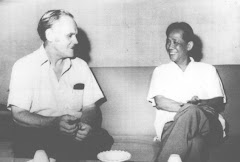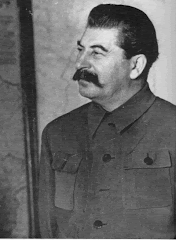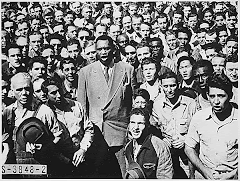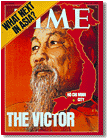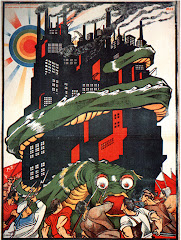By Marc Frank in Havana
Financial Times
December 13 2010
http://www.ft.com/cms/s/0/
Rising debt charges are forcing Cuba to reshape its Soviet-
style economy, with leading creditor China among those
cheering on the changes.
A Cuban Communist party congress, scheduled for April, will
discuss and likely ratify policies that are already starting
to be implemented. These include cutting 20 per cent of state
workers, cutting social benefits, eliminating state
subsidies, improving Cuba's trade balance and liberalising
rules for small business and foreign investment.
ChartCuba, which is the subject of a strict US embargo and is
excluded from most international lending organisations,
depends on China as a creditor of last resort. Its proposed
reforms are remarkably similar to those typically required
under International Monetary Fund bail-outs - although
privatisation of state assets is not on the agenda.
In a recent closed-door meeting of 500 senior officials
chaired by Raúl Castro, president, Cuba's economy minister,
Marino Murillo, reportedly stated that mounting debt and the
need for fresh credit had left the government no choice but
to put its economic house in order.
A video of the November meeting, called to discuss plans for
next year's congress, is making the rounds of Havana's elite.
Cuba faces rising principal and service charges over the next
five years and simply does not have the money to meet them,
Mr Murillo, reportedly said on the video.
Cuba last reported its foreign debt at $17.8bn in 2007. Most
analysts agree it now exceeds $21bn, or close to 50 per cent
of gross domestic product and 30 per cent more than annual
foreign exchange revenues. Many creditors have tired of
Cuba's debt reschedulings. China is a relatively new member
of Cuba's creditor club, having provided billions in loans
over recent years. But it is now Havana's biggest creditor
and second largest trading partner, after Venezuela.
According to a number of people familiar with the video, Mr
Murillo specifically talks about the need to repay China on
time. Plans to develop oil refineries, ports, railways, the
nickel industry and power generation will require billions in
fresh credit.
Mr Castro's point man for economic reform reportedly argues
in the video that state-run companies should be freed from
government administration and defends plans to shift hundreds
of thousands of workers to 'non-state' jobs such as small
businesses, farms and co-operatives.
'Mixed-capital companies, co-operatives, farmers with the
right to use idle land, rented property landlords, self-
employed workers and other forms that contribute to raise the
efficiency of social labour must be recognised and
encouraged,' adds a 32-page discussion document prepared for
the congress, which will set out Cuba's social and economic
policies through 2015.
Cuba is counting on China and Venezuela to provide fresh
development credit. Some of its debts to Beijing will be
backed by Venezuelan oil as collateral. A diplomatic cable,
released by WikiLeaks last week, describes a US diplomat's
breakfast meeting with the commercial attachés from Cuba's
biggest trade partners. 'Even China admitted to having
problems with getting paid on time,' the cable reported.
'[Officials from] France and Canada responded with ‘welcome
to the club'.'
According to Asian diplomats in Havana, Chinese and even
Vietnamese officials have repeatedly 'suggested' Cuba
modernise and offered their assistance. Discussion documents
for next year's congress, the Murillo video and government
statements all indicate that Havana may finally be heeding
their advice.
Fidel Castro, former president, recently praised China's
'rectifications' and told university students: 'China is
worth studying.'
'Cuba is prepared to take advantage of China's experience in
developing reform and opening up,' Ricardo Alarcón, a long-
time politburo member, added while visiting China last month.
Such words will surely be welcomed in Beijing as it ponders
further loosening its purse strings.
Copyright The Financial Times Limited 2010






